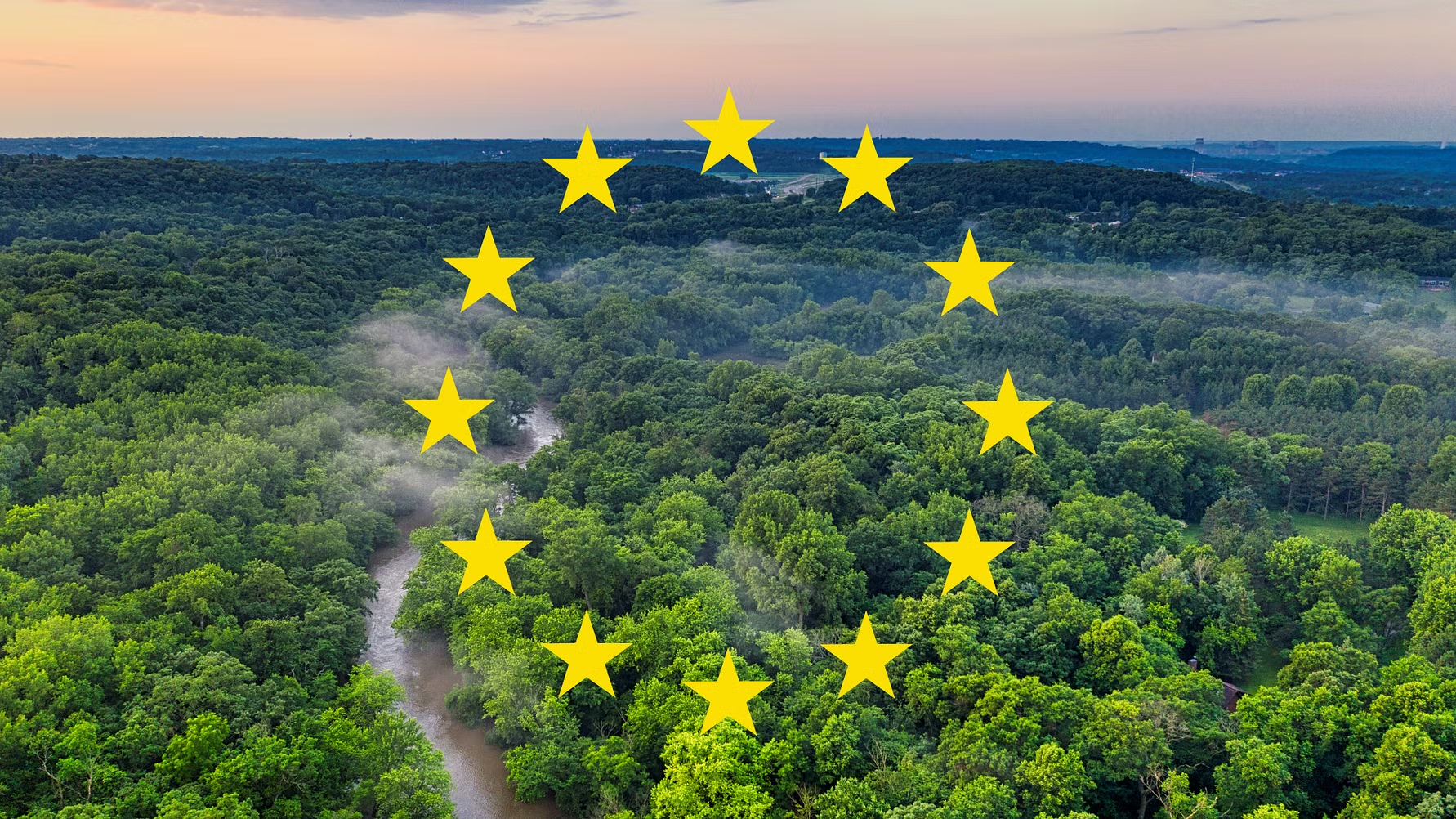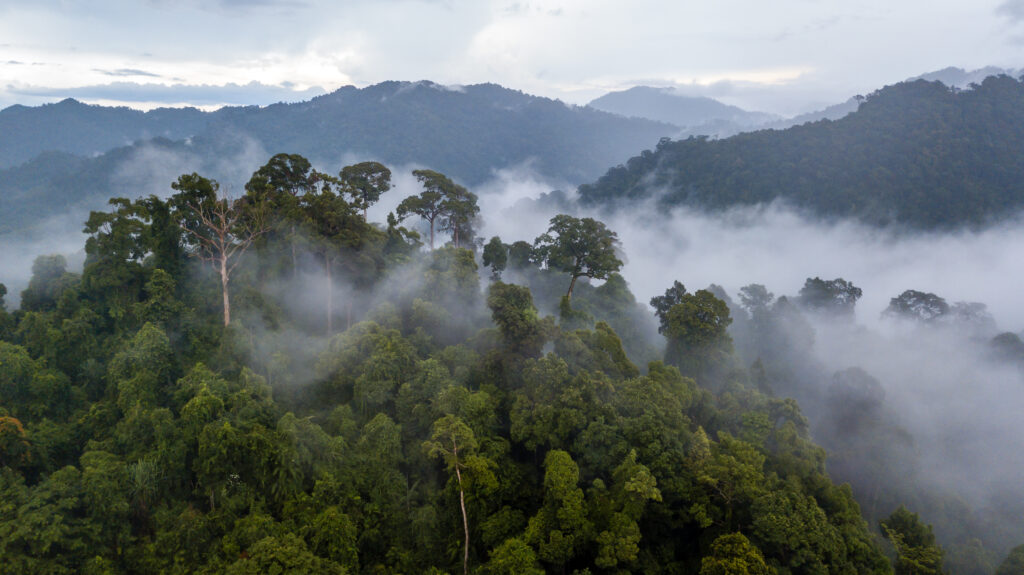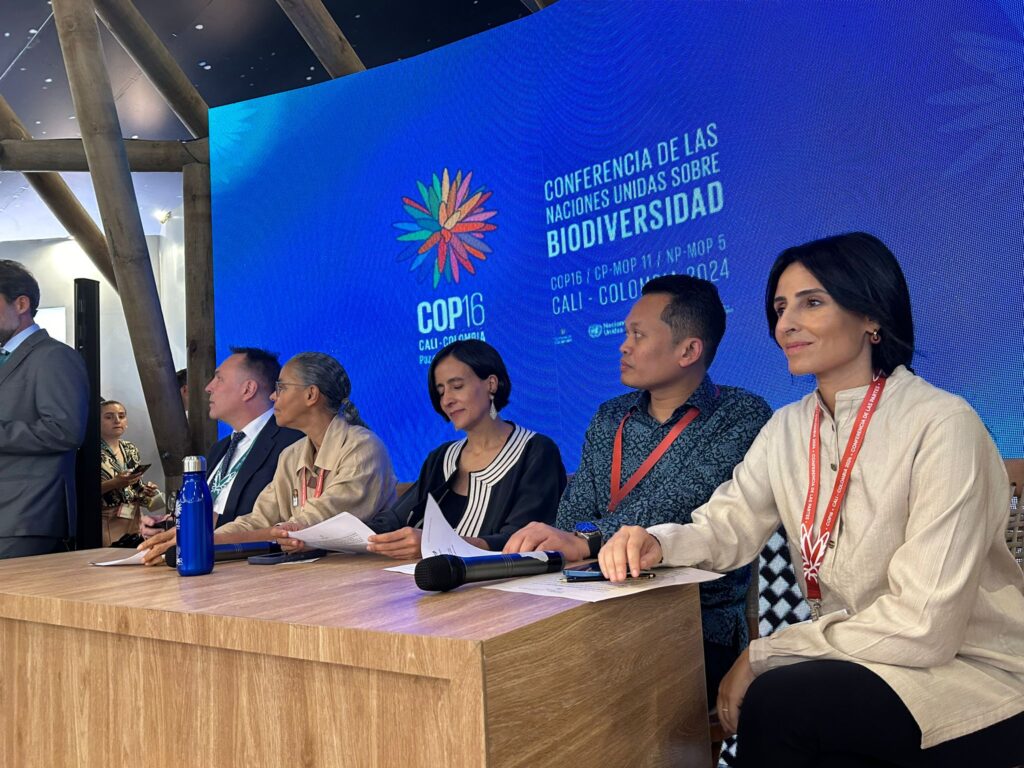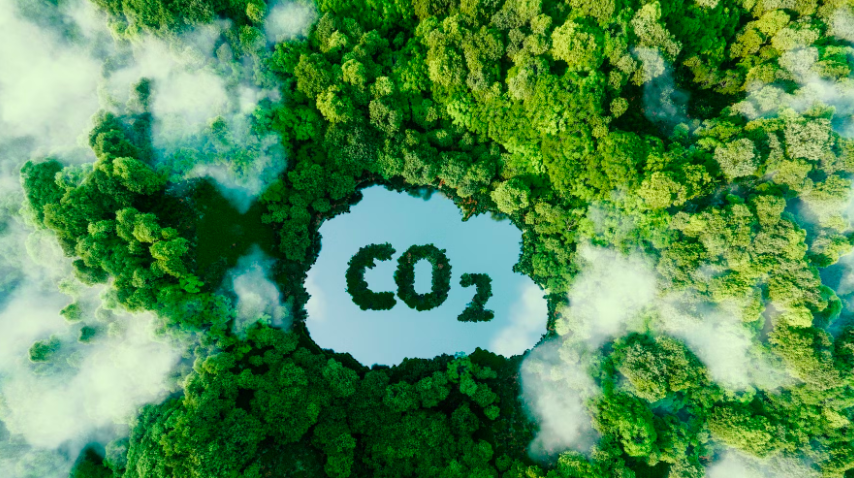
Forests of the World: The EU’s New Law is Good News for Forests, but Doesn’t Go All the Way
The EU’s anti-deforestation law has now been officially adopted. While it is a significant step toward halting deforestation and has the potential to change the way we produce, several loopholes pose a risk that deforestation may continue
The EU’s anti-deforestation law has now been officially adopted. While it represents a significant step towards halting deforestation and has the potential to change the way we produce goods, a number of gaps could pose a risk that deforestation will continue.
Early Tuesday morning, the EU’s elected representatives in Parliament reached an agreement with the Member States in the Council of Ministers on the EU’s anti-deforestation law. The law aims to stop the import and export of goods that have caused deforestation and is the first of its kind in the world. In short, the law outlines due diligence requirements that companies must comply with in order to sell their goods to and from the European market.
“That we now have a regulation against deforestation is a major milestone with enormous potential, but there are some gaps we would have preferred to avoid. We fear these could potentially undermine the law’s purpose. That said, we will, of course, fight to ensure the law becomes a success for the benefit of forests,”
Anne-Sofie Henningsen, Advisor at Forests of the World
A law against deforestation in the EU holds significant global symbolic value. It demonstrates that the EU is taking its responsibility seriously in addressing deforestation driven by European demand—a crucial step as we face an escalating climate crisis. Policymakers in Brussels hope the law will resonate globally and inspire other countries to adopt similar legislation. It will be interesting to see if the law creates ripples beyond Europe now that it has been launched.
Forests of the World has been particularly focused on Indigenous Peoples and their rights, the protection of other ecosystems, and the scope of the law regarding the range of goods it will cover.
More goods, less deforestation
There has generally been broad agreement that the legislation should focus primarily on the six commodities most at risk of causing deforestation: soy, palm oil, coffee, cocoa, timber, and cattle. However, whether the law should focus solely on these six commodities was hotly debated in the decision-making rooms of Brussels. The European Parliament pushed hard, right up until the end, to ensure that rubber was included in the final regulation, and fortunately, they succeeded; in the final text, rubber has been added alongside paper and charcoal.
“It is incredibly important that commodities such as rubber, paper, and charcoal have been included. This will undoubtedly help reduce the incentive for deforestation in the areas where these commodities are produced,” says Anne-Sofie Henningsen, adding:
“Unfortunately, other types of meat, such as poultry and pork, were excluded, as was maize. However, the Commission is required to assess within two years whether maize should be included.”
A Law That Only Protects Forests
The EU has now passed the first-ever law against deforestation. Although it was never intended to protect anything other than forests, experience shows that a strict focus solely on forests can shift destruction to other ecosystems, such as wetlands and savannas.
During the negotiations, the European Parliament pushed to nuance the law, for example, by proposing that it also cover so-called “other wooded areas.” This would have been a significant improvement to ensure a broader understanding of valuable natural areas. However, the proposal faced resistance, and Parliament was unable to push it through. The compromise reached was that the Commission must, within the law’s first year, assess whether other wooded areas should be included, and after two years, whether all ecosystems can be covered.
“We would have liked the final law to protect not just forests but also other ecosystems, such as wooded savannas and similar areas. As it stands, we now have a law that protects forests but simultaneously allows other ecosystems to be cleared without consequences—at least for the next two years,” explains Anne-Sofie Henningsen.
The rights of Indigenous Peoples have been a contentious issue among EU decision-makers, and only at the eleventh hour did the Parliament and the Council of Ministers reach a compromise: Indigenous Peoples’ claims to their territories are recognized to some extent, but only when these rights are codified in local legislation. At the same time, as part of their due diligence obligations, companies are also required to consider the rights of Indigenous Peoples.
“It’s a small victory in itself that the rights of Indigenous Peoples to their territories are mentioned in the law, but it’s far from adequately protected. We would have preferred to see companies not just consider Indigenous Peoples and their right to free, prior, and informed consent but actually be required to respect it,” explains Anne-Sofie Henningsen.
It is well-documented that Indigenous Peoples are the best at protecting and maintaining forests and that these populations are under severe pressure. For this reason, civil society, including Forests of the World, has fought to have the rights of Indigenous Peoples included in the anti-deforestation law and to have them recognized as crucial allies in forest conservation.
“We will continue to work towards strengthening the rights of Indigenous Peoples, including within EU legislation. This law can serve as a stepping stone, even though it doesn’t go far enough,” says Anne-Sofie Henningsen.
For more information, contact:Anne-Sofie Henningsen: anh@verdensskove.org
Background Information
In just one year, it will be assessed whether other forested areas should be added to the law. Additionally, the rest of the law will be reviewed in two years, and Forests of the World will continue to fight for stronger ambitions. You can support our work by becoming a member.
The EU’s anti-deforestation law has been in the works for a year since the Commission presented its proposal in November 2021.
Now that EU partners have reached an agreement, the law must officially be approved by the Council of Ministers and Parliament, and then it will need to be implemented in the member states. The law is set to come into effect around the summer of 2024.
Press contact
Jonas Schmidt Hansen
Who is Forests of the World?
We work to preserve the world’s forests, both in Denmark and the world’s tropical forests.Our focus areas include sustainability, Indigenous Peoples and local engagement.



